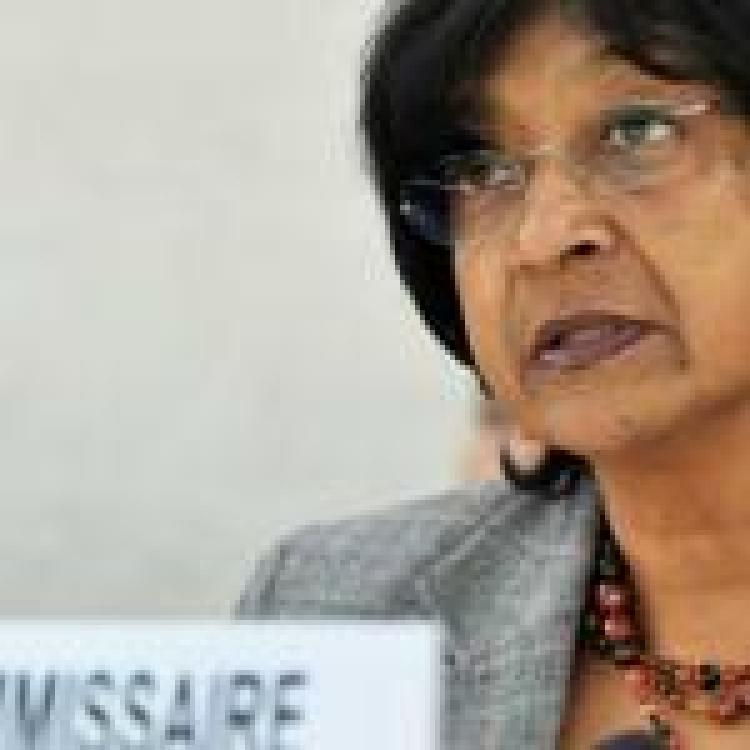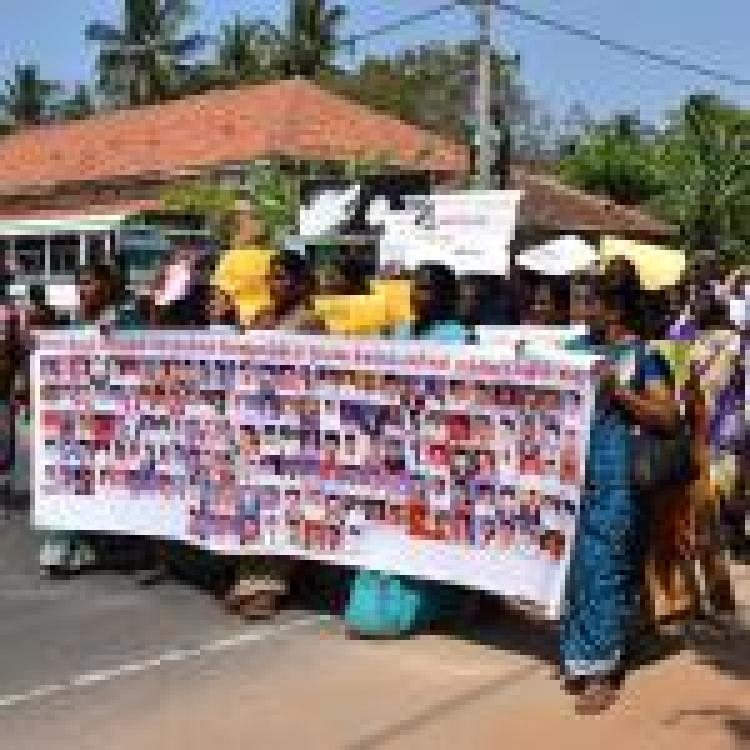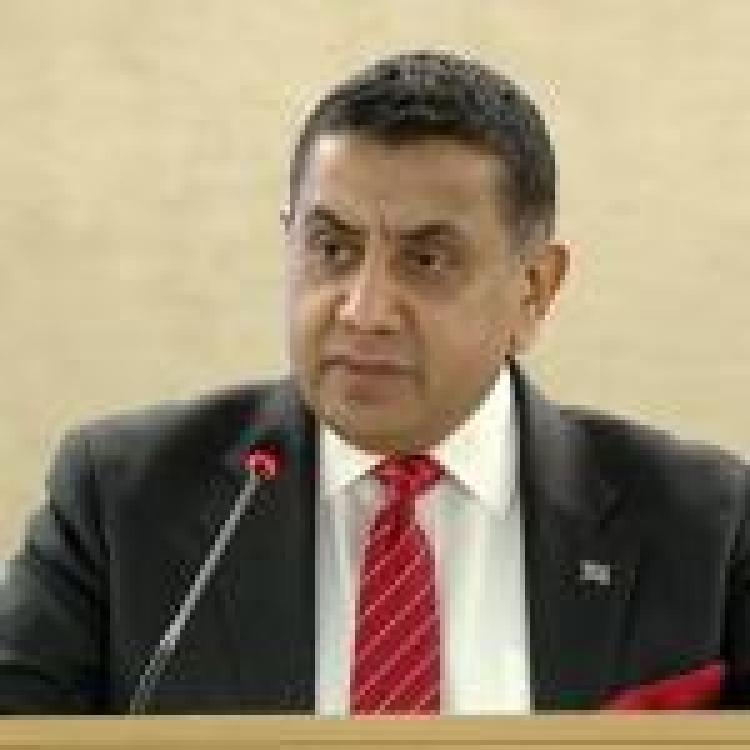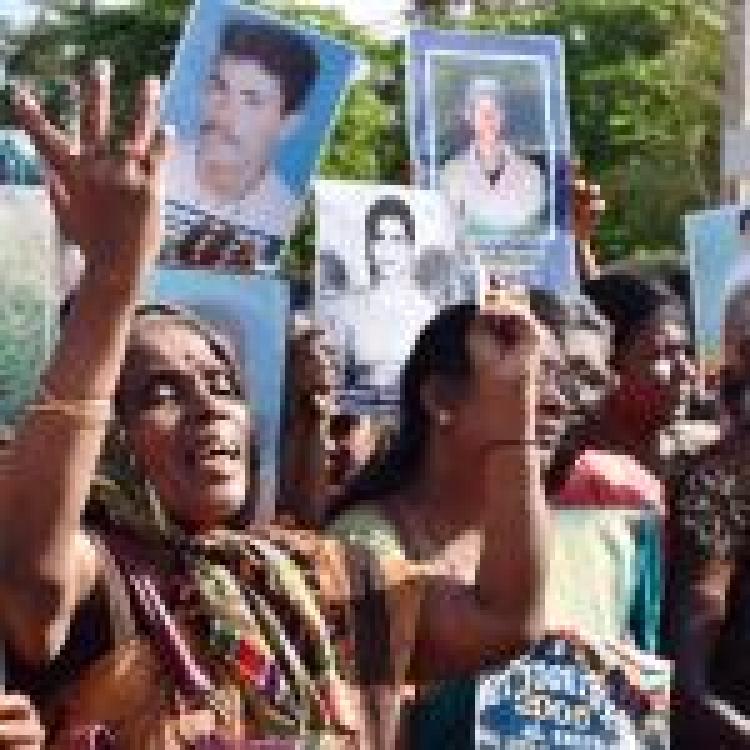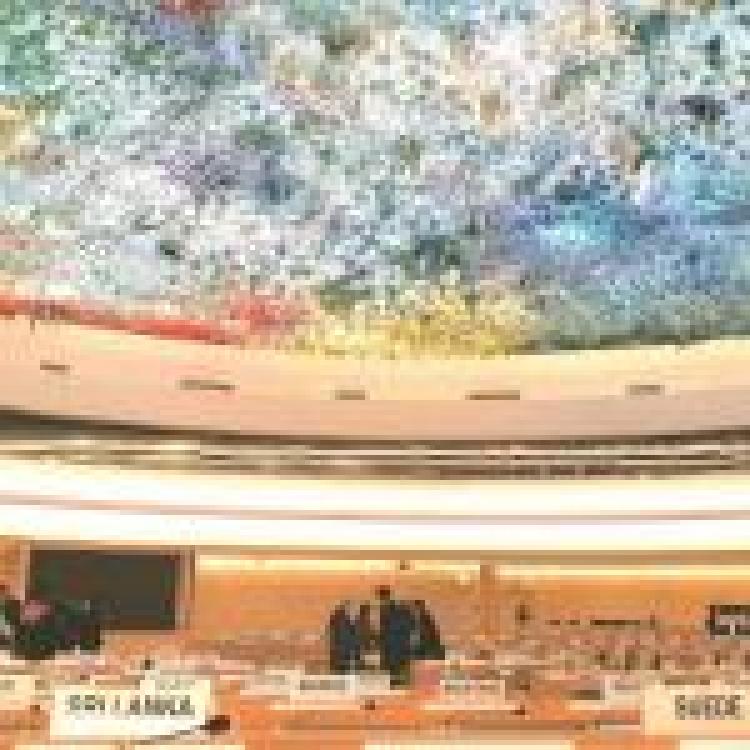![]()
The Australian Foreign Office said Sri Lanka's progress was slower than it should be and also expressed alarm at the government's plans to renew the use of the death penalty, during a Senate Estimate Hearing last week.
"The department, the government, is in agreement with the view that progress is slower than it should be and we'd like it to be. Some of this will be a matter for consideration before the next session of the Human Rights Council," First Assistant Secretary, South and West Asia Division at Australian Department of Foreign Affairs and Trade, Simon Merrifield said in response to a question put forward by Senator Moore.
Asked about the issue of the death penalty and whether pressure would be applied during the UNHRC session currently underway, Merrifield replied:
"There'll be a lot of pressure. Issues around the death penalty are front and centre for us. Our concern is that the death penalty hasn't been carried out in Sri Lanka since 1976. The announcement to reintroduce the death penalty for drug trafficking offences—which I think occurred in the last quarter of last year—is of considerable concern to Australia, and one that we have registered our protests on in Sri Lanka.
Read excerpt of the Hansard transcript below:
Senator MOORE: I want to ask a couple of questions about Sri Lanka. I've just got an update on the Sri Lankan situation. We spoke about some of the human rights committees—the joint standing committee and also the Human Rights Subcommittee of Foreign Affairs, Defence and Trade—and about the situation. We've had briefings from DFAT about the situation with Sri Lanka. As you know, late last year there was a movement by a number of countries to put focus on the slowness of change in the progress that Sri Lanka was requested to make towards having some reconciliation in their country. We had a discussion in one of the areas about what was Australia's position in that process, and I'm just wanting to get an update on where Australia is sitting in the ongoing process with the Sri Lankan response.
Mr Merrifield: The department, the government, is in agreement with the view that progress is slower than it should be and we'd like it to be. Some of this will be a matter for consideration before the next session of the Human Rights Council.
Senator MOORE: When is that scheduled for?
Mr Merrifield: That's towards the end of next month.
Senator MOORE: It's March?
Mr Merrifield: Yes, late March, that's correct. We are still deliberating our approach to that. And there are a number of options that may arise in terms of how that's dealt with. The intentions of various parties with a stake in that, be it like-minded partners of ours or the Sri Lankan government itself—their positions aren't resolved yet either. I wouldn't want to speculate too much on that. But I would say that it's not as if there hasn't been progress. And some developments have occurred over the last couple of years that are notable and in line with the reconciliation agenda but are quite limited and I think quite a considerable distraction caused by political instability in Sri Lanka—in particular, tensions within the national unity government. We saw over the course of the latter months of last year a good deal of lost time as Sri Lanka worked its way through a very difficult political crisis.
Ms Adamson: The next Human Rights Council session, HRC/40, begins on Monday and runs until 22 March. Senator MOORE: The Sri Lankan issue will be on that agenda. There are people going from various groups in Australia as well as some other nations to observe and to partake in the civil society element of that process.
Mr Merrifield, what is the relationship with the group that was pushing for stronger change—Germany, Macedonia, Montenegro and the UK? They signed a statement, which we saw, and at that stage the report we were given was that Australia was considering its position. You've said that's continuing. Between September and now, has there been interaction with our Australian delegation, or the people who'll be representing Australia, and those other groups—particularly the UK, which has taken a strong position publicly and in their parliament on this issue?
Mr Merrifield: I'm well aware of the group you're referring to; there have been changes within it.
Senator MOORE: Yes, they change, and they talk, and more people come in and other people go out.
Mr Merrifield: That's right. We've now got Germany and Canada in there— Senator MOORE: Canada was always taking a strong position in this space. Now they've signed up to this statement that there needs to be action from the Sri Lankan government. You said that we're still considering our position. Is Australia talking with these other nations? There's a degree of frustration from people who want greater change that our name is not part of that group that is making statements. What discussion is going on?
Mr Merrifield: We're discussing these things with our partners all the time. In relation to this statement, my understanding is that we've not been invited to join it.
Senator MOORE: Senator McGrath has issues in this area as well. Has the instability in the Sri Lankan government that we've seen publicised and their proposal to reintroduce the death penalty, which has received some media, been part of the discussion? I would have thought there's an ongoing issue at the human rights conference about the death penalty, so is added pressure being put on this session that's starting next week?
Mr Merrifield: There'll be a lot of pressure. Issues around the death penalty are front and centre for us. Our concern is that the death penalty hasn't been carried out in Sri Lanka since 1976. The announcement to reintroduce the death penalty for drug trafficking offences—which I think occurred in the last quarter of last year—is of considerable concern to Australia, and one that we have registered our protests on in Sri Lanka.
Senator MOORE: When the Australian delegation on the council is in session, do they meet with the social justice delegates who come from the community that are going to observe from Australia? Is there a process where the Australian people who are there pushing particular issues get a chance to talk with the delegation and share information and raise their concerns?
Mr Merrifield: That's an excellent—
Ms Adamson: Mr Lee is in the division that works with them, and yes, there's intensive interaction. In the spirit in which you ask the question, we'd like to contact our delegation in Geneva, raise your point—if it's not already happening, and it may be—and see whether there can be some contact with the delegation. We put a high priority on our engagement with all stakeholders in relation to our HRC participation and membership. Mr Lee may want to add something.
Senator MOORE: Mr Lee, thank you for the briefings you've given to the other committees as well—that's how we got the information.
Mr Lee: On the timing, which the secretary and Mr Merrifield mentioned, the interactive dialogue on the Office of the High Commissioner's report on Sri Lanka will be on 20 March, quite late in the session, towards the end of the session—22 March—as the secretary mentioned. In relation to civil society engagement, the department hosted a forum with the civil society on 6 February in the lead-up to the Human Rights Council session. Part of that was to get input from civil society on a range of issues in the lead-up to the session. We've already received a lot of input, which we go through and communicate to our officers and our ambassador in Geneva to take that into account in the issues that might come up in the Human Rights Council. There will be opportunities on the ground, and we'll make sure we speak further to the mission about that.
Senator MOORE: And that session was here in Australia?
Mr Lee: Yes, that was in Canberra.
Senator MOORE: I know some of the people who are going to Geneva. Thank you.
Senator FIERRAVANTI-WELLS: I only saw last week in passing, on Twitter, that they've advertising for a couple of hangmen; I'm sure you would have seen that. I thought that was appalling. I saw advertisements calling for 'interested persons' for this role in Sri Lanka.
CHAIR: On that cheery note, I have a question on Sri Lanka and the Maldives. I make my usual declaration of conflict of interest in terms of the work I've done there previously. I don't know if you're the right department to ask this, but there are a number of officials in the previous Sri Lankan government and the former government in the Maldives who are under a cloud in relation to money-laundering. Indeed, the former president of the Maldives, Abdulla Yameen, was arrested two days ago. Do we have a watch list of senior officials from any country in terms of their travel to Australia and if they have transferred or have large holdings in Australia? In terms of the Maldives, I think the initial charges only concern a couple of million US dollars, but there is speculation that it might go into the tens of millions. Is that something we keep a watch on broadly around the world; in particular, in relation to the former governments of Rajapaksa in Sri Lanka and in the Maldives? Mr Merrifield: In relation to those cases, I'm not aware of any action that has been triggered on the part of our authorities. We would be concerned if Australia were being used for purposes of embezzling funds.
CHAIR: You would probably want to hear from those governments if they had evidence that embezzled funds from those countries were being laundered in, or transferred to, Australia?
Mr Merrifield: Precisely
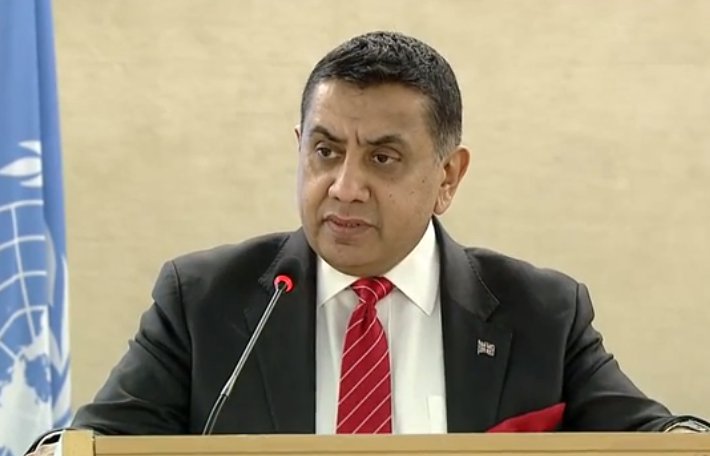
Addressing the Council on Monday the United Kingdom urged Sri Lanka to "implement in full" the co-sponsored resolution 30/1 of the UN Human Rights Council, which calls for a hybrid mechanism of justice to examining crimes committed at the end of the armed conflict.
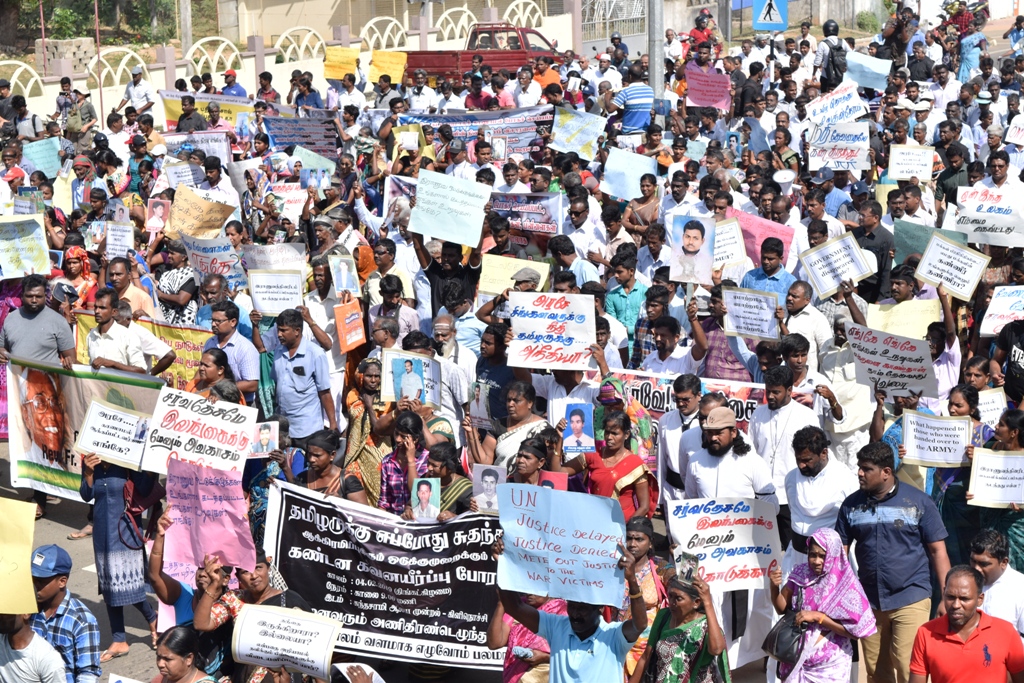
Kilinochchi, February 25, 2019
The Council's 40th session in Geneva comes as Tamils across the North-East protest, condemning reports Sri Lanka will be given another two years to implement the resolution and instead are calling for the country to be referred to the International Criminal Court, highlighting the government's failure to take meaningful action on the resolution.

